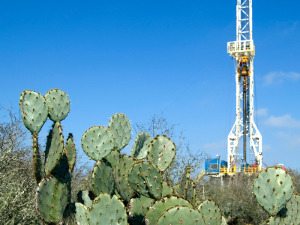
[miningmx.com] – AMENDMENTS to South Africa’s environmental legislation on September 2 have attorneys in a spin as they make mining, gas and petroleum projects in the country vulnerable to dispute and delay.
In essence, the amendments make it possible to appeal the granting of an authorisation in terms of the National Environmental Management Act (NEMA) which are required by the Department of Mineral Resources (DMR).
According to Garyn Rapson, an attorney with Webber Wentzel, appeals will now automatically suspend the environmental authorisation until the appeal is resolved, delaying the project, and without question or risk of sanction to the appellant, once an appeal is lodged. What’s more, draft appeal regulations indicate the appeal must be resolved in about 90 days.
“Whether this is enough time to work through an appeal on an enviromental authorisation is questionable,’ said Rapson.
“Applications for environmental authorisations often run into thousands of pages so the truncated appeal timeline is worrying especially because the draft does not contemplate the extensions of the timelines,’ he added.
Given that companies in the oil and gas industries are also ruled by licence applications as set down in the Mineral & Petroleum Resources Development Act (MPRDA) means that developers of the Karoo’s substantial gas resources would be equally vulnerable to potentially spurious appeals along environmental lines.
Fracking gas from the Karoo is an enormously emotional issue. At the moment, there is a moratorium on exploration but Government is almost certain to allow exploration of the area in the future.
When all’s said and done, the ANC made the game-changing nature of gas from the Karoo to South Africa’s energy mix a key element of the pre-2014 national election manifesto.
These risk to mining operations is the unintended consequence of Government attempts to streamline the application process by allowing for a “One Environment System’.
In terms of the system, it allows mining companies to apply for a mining rights and environmental authorisations from the Department of Mineral Resources (DMR) without having to separately approach the Department of Environmental Affairs (DEA) from which NEMA was born.
One complication of the appeal process, however, is that once an appeal is lodged – be it a disgruntled farmer, a competing business or valid ecological lobbyist – the matter falls to the environmental affairs minister and not the mineral resources minister which first deliberated on the award.
If it sounds complicated, don’t worry. It has attorneys in a froth.
“When you invest in a mining operation it is massively expensive,’ said Wessel Badenhorst, an attorney for Hogan Lovells.
“You have to take a view as long as the regulator gives you certainty. But these amendments create uncertainty in an economic environment that’s already uncertain. It’s not very prudent for mining investment,’ he added.
As it happens, there is a proposal by the mines minister, Ngoako Ramatlhodi, to review amendments to the MPRDA such that oil and gas companies will have separate legislation written for them. Were this to happen, however, it would mean the mining licence application process will remain in a state of near unremitting disarray.
That’s because the MPRDA amendments were meant to be signed in to law by President Jacob Zuma simultaneously with the NEMA amendments so as to give effect to the One Environmental System.
“There is now a misalignment between the statutory timelines in the NEMA and MPRDA that causes confusion,’ said Rapson.
Inevitably, the matter doesn’t stop there.
Residue stockpiles, formerly exempt from separate environmental licensing because as a function of mining they were governed by a mining licence, now require separate licensing under the Waste Act.
This may see the likes of DRDGold, which retreats gold dumps, having to engage in a new round of environmental applications.
“This creates the risk of expropriation,’ said Hulme Scholes, an attorney for MalanScholes who added that Government could take back economically mineable dumps.
Provisioning in company accounts for rehabilitation is also likely to have been significantly under-estimated by mining companies in terms of the new changes to NEMA which has attempted to make them responsible for future acid mine drainage costs. This may see gold companies in particular have to provide for a water retreatment facility for when mining ends.










